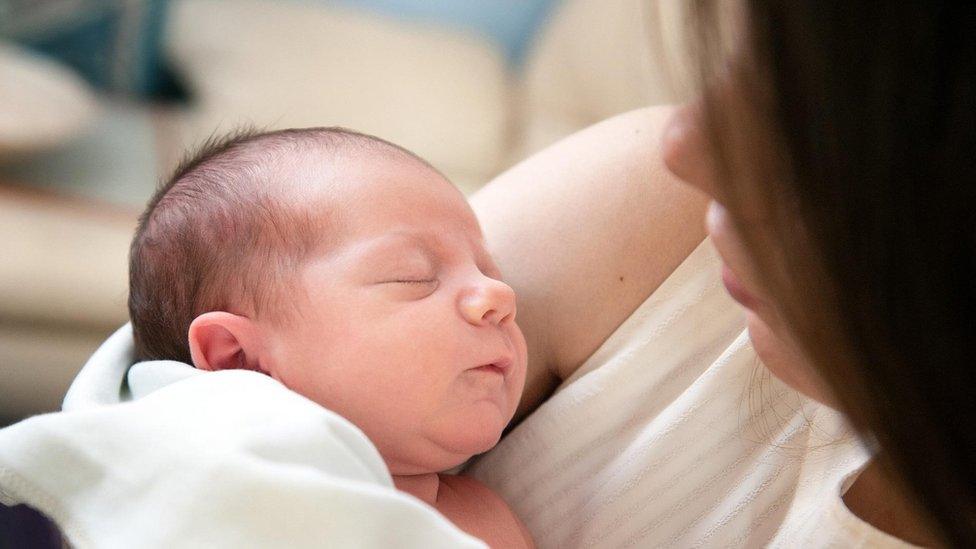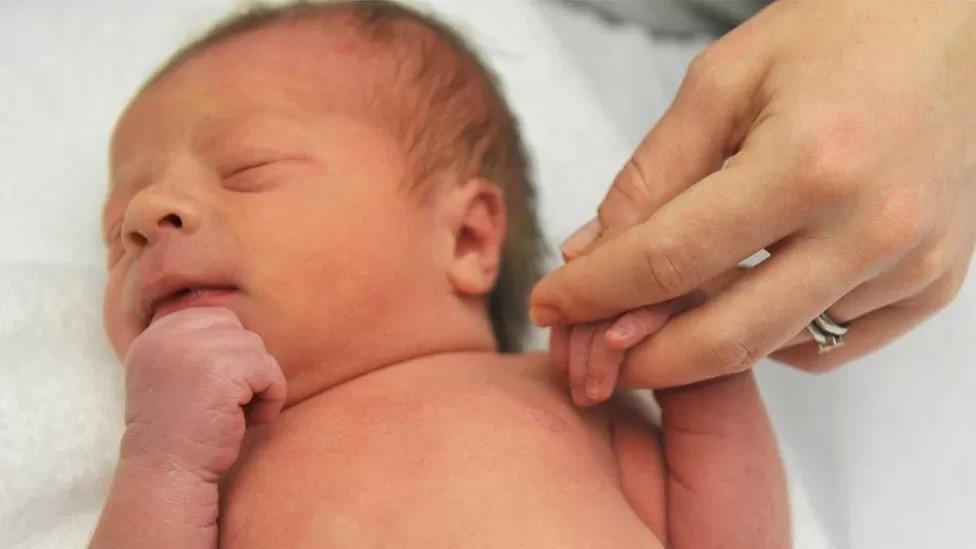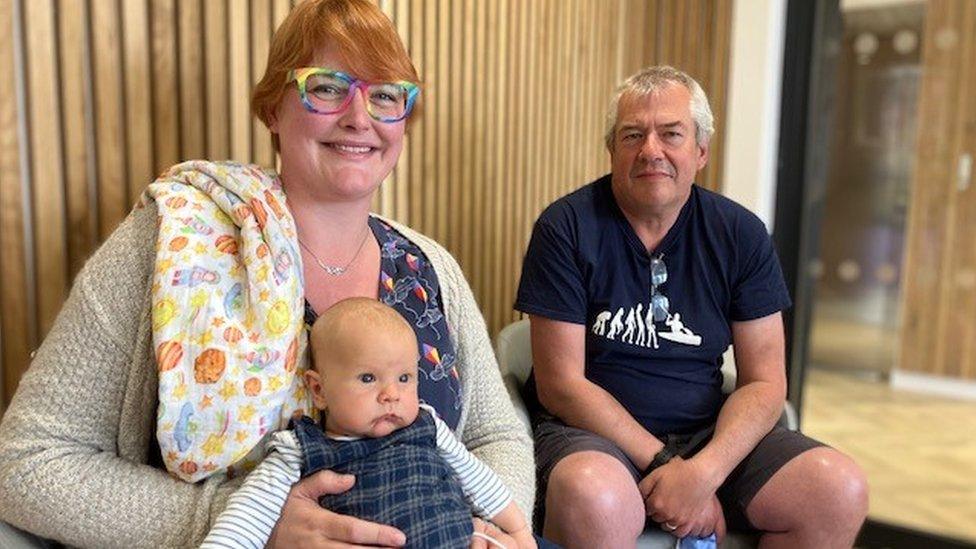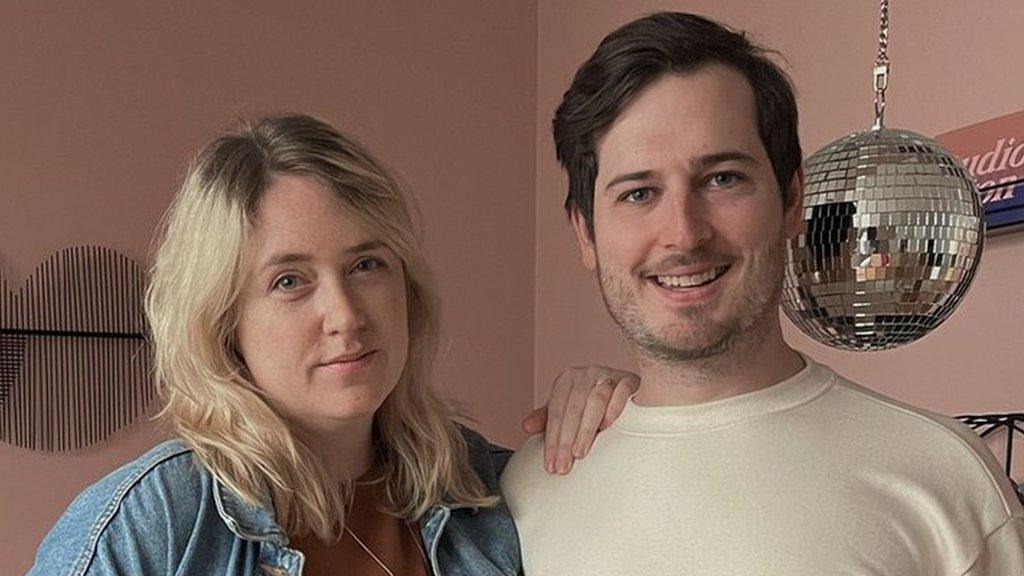Bristol: Single women and transgender people to get fertility treatment
- Published

More people will be able to get fertility treatment in Bristol, but the maximum age for women seeking it will fall
Fertility treatment will be extended to single women and transgender people on the NHS in Bristol for the first time.
Bristol, North Somerset and South Gloucestershire Integrated Care Board approved a new policy after hearing the existing one was open to legal challenge under the Equality Act.
At present only straight or gay couples are eligible for the service.
The maximum age for prospective mothers will also be lowered from 40 to 39.
Board members heard the decision to reduce the female upper age limit was based on evidence about the much lower effectiveness of treatment for women over 40.
NHS data from 2019 shows successful live births resulted from 19 per cent of women aged 38 and 39 who underwent IVF, compared with 11 per cent aged 40 to 42.
Men aged up to 54 will still be eligible under the changes.
The new policy will come into effect from 1 April, and follows a review launched in March 2021 that gained the views of 438 people and organisations.
It involved consultations with local fertility specialists and a 12-week public engagement which asked what the priorities should be in the local approach to funding infertility treatment.

More people will be able to freeze eggs or sperm from 1 April
Three common themes highlighted in the feedback were:
To widen the scope of people who can access reproductive cells preservation
To increase the number of cycles of IVF from one to three
To consider the length of time a person has not conceived as more important than their relationship status
The number of independently funded cycles of intrauterine insemination (IUI) - a fertility treatment where sperm is inserted directly into the womb - needed to demonstrate infertility was also reduced from 10 to six.
In addition, people whose NHS treatment will have an adverse or irreversible impact on their ability to conceive will be able to freeze eggs or sperm.
This includes patients having surgery on a second ovary or testes and transgender people on the transition pathway.
The new policy will also support people with diagnosed therapy-resistant psychosexual issues that prevent them from having children without assistance, and will continue to offer individuals one fresh and one frozen cycle of IVF.
Chief nursing officer Rosi Shepherd said: "The proposals aim to provide better equity of access for local people - which was important feedback we heard during the consultation - while staying within our limited resources."

Follow BBC West on Facebook, external, Twitter, external and Instagram, external. Send your story ideas to: bristol@bbc.co.uk , external
- Published16 May 2022

- Published27 November 2022
